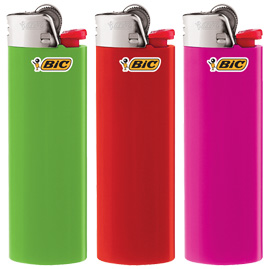When is Butane a Good Choice For You?
A powerful alkane, butane is a highly flammable natural gas derivative that is an essential energy source for many devices and activities. Butane, or C4H10, has two structural isomers, which are used for different purposes. Although most people’s use of butane is limited to disposable lighters to spark up their cigarettes or candles, butane has many far-reaching uses of which you may be unaware. Consider using this inexpensive and widely available natural gas derivative for any one of its many applications.
The Best Uses for Butane
Pure and refined butane are used for both individual and industrial purposes, as well as in many of the commercial products that we regularly use. Here are just a few of the many ways that butane can be used.
 Cigarette Lighters – Perhaps the most widely known use for butane is in disposable and refillable cigarette lighters. But these pocket-sized lighters are not just for cigarettes. They are easier to use than matches and are ideal for products that do not require a large or extremely hot flame such as lighting decorative and atmospheric candles, burning incense, and smoking tobacco from pipes.
Cigarette Lighters – Perhaps the most widely known use for butane is in disposable and refillable cigarette lighters. But these pocket-sized lighters are not just for cigarettes. They are easier to use than matches and are ideal for products that do not require a large or extremely hot flame such as lighting decorative and atmospheric candles, burning incense, and smoking tobacco from pipes.- Cooking – The image of a master chef using a butane torch to brown the tops of their delicious crème brulee demonstrates one popular use of butane in the kitchen. Besides caramelizing sugar, culinary butane torches can put the finishing touches on such cuisine as roasted vegetables, including multicolored bell peppers, melting or browning the tops of soups and casseroles, and melting cheese. We owe quite a few of our favorite dishes to the powers of the butane torch.
- Industry – Butane torches can reach flame temperatures as high as 2,600 degrees Fahrenheit, which make them ideal for melting and shaping metals such as copper and steel. Plumbers use butane torches or soldering irons to solder metals while other carpenters and construction workers may rely on butane torches to cut or weld common metals.
- Arts and Crafts – Many jewelry and glassmakers rely on butane torches to create customized, handcrafted pieces of art. Depending on the size of the butane torch, it can be used to solder jump rings and bezels closed, anneal metal, torch firing enamel, make a heat patina, form beads, and torch firing types of metal clay. Butane is also used to fuel hot glue guns.
- Camping – Another common use for butane is in portable camping stoves for a warm meal while on the trail. Backpackers, picnickers, and car-campers alike flock to butane-fuelled portable stoves for their light weight, simple operation, low maintenance, and convenience. For those who prefer to do their outdoor barbequing a little bit closer to home, many grills also use butane fuel.
- Refrigerating – Isobutane, which is a pure form of the chemical, is often used as a refrigerant in household refrigerators and freezers as well as vehicle air conditioners. It’s estimated that about 300 million refrigerators worldwide use isobutane as a hydrocarbon refrigerant.
- Other Uses – From pocket butane torches that light cigars to cordless hair irons, butane has a variety of other consumer uses that cross fields. Butane is used in many outdoor or portable space heaters and lanterns.
Types of Butane and Its Many Benefits
As a natural gas derivative, butane can be both left pure as isobutane, also known as methylpropane, or refined into N-butane, which is the gas liquid that people think of as normal butane. Both of these compounds have far-reaching uses and benefits.
Isobutane – In 1993, isobutane started to replace Freon and halomethanes as a refrigerant in domestic refrigerators and freezers because, unlike its less green-friendly predecessor, its emissions do not contribute to ozone depletion.
Newport Butane – Refined butane, also known as Newport or N-butane is less expensive, less toxic, and more energy efficient than another fuel that it is commonly compared to, propane. It burns more cleanly than propane and only releases carbon dioxide rather than the more dangerous, and sometimes lethal, carbon monoxide. Although it is odorless and colorless, a noxious scent that is easily detected by the human nose is often added to butane so that leaks can be identified before any damage is done. Butane is easy to bring along using portable canisters and is widely available for purchase.
Liquefied Petroleum Gas – Butane can also be combined with propane and other hydrocarbons to form LPG (liquefied petroleum gas). The resulting chemical blend is used to fuel vehicles and lighters, and as a propellant in aerosol sprays such as hairspray and cooking sprays.
Easy and inexpensive to produce, butane is a great choice for portable and outdoor fuel sources. If you’re uncertain about which brand or type to buy, contact the experts at Butane Source for information about brands from Whip-It! to Colibri butane.
